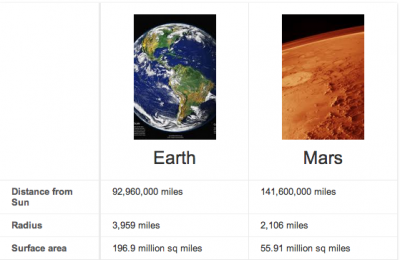Google turned 15 years old on September 4. Though the search and internet giant is still far and away the go to site to find answers to all of life’s questions, the latest major update to Google’s search algorithm, Hummingbird, ensures it can remain the leader as the company enters its third decade.
Hummingbird capitalizes on mobile browsing and working across multiple devices.
What’s it all about?
Google Chrome, now the world’s most-used browser, is available for download on all personal computer devices, as well as Android and iOS tablets and smartphones. The Hummingbird update allows the user to take advantage of having Google products on all devices. As
Amit Singhal, Senior Vice President of Google Search, details in a recent blog post about the Hummingbird updates, a user could tell their Nexus 7 tablet “Remind me to pick up olive oil at Safeway,” and Google will remind the user once she walks into the grocery store.
Even more powerful, Hummingbird has built on the Knowledge Graph, which Google introduced last year. This technology allows Knowledge Graph to understand relationships between words, and searches. For instance, Knowledge Graph lets the user search for “Leonardo Da Vinci,” and the search output shows Da Vinci’s works, his contemporaries, and his personal history. Additionally, if the user searches for “Da Vinci,” and then in a subsequent search asks, “when was he born?” Google knows the user was asking about Da Vinci based on the previous search, and will output: April 15, 1452.
Intuitive Search
Hummingbird takes this to the next step, where search now better understands phrases searched. Now, Google Search won’t look only at the individual words being searched, but also for meanings behind a full phrase.
Google and many other companies focusing on wearable technology and voice recognition have the sense of how people talk. Hummingbird is built with the understanding that when people use voice search, they will ask in phrases, not in just two or three words.
The user could ask, “Where is the closest place to buy a grilled cheese sandwich?” Before, Google might have only focused on the words “grilled cheese sandwich.” Now that it knows and tracks more about the user, the search will consider where the user currently is, and where sandwich shops are located close by.
Comparison Search
To go along with Hummingbird’s understanding of phrases, you can search for comparisons of two things. The search for “compare Earth vs Mars” will output key information on both planets, including size, number of moons, and pictures.

Earth v Mars search result in Hummingbird
What does it mean for you?
Because the Hummingbird update was released sometime in August and officially announced near the end of September, it is impossible to see if the search updates actually help get better results. However, if what Google says Hummingbird does is accurate, it certainly sets Google users up to get search results that most accurately reflect what they’ve asked.
As for search engine optimization, Google says that putting out high-quality content is the most important factor to getting recognized.
Based on Hummingbird’s ability to consider full phrases, though, it seems like individual keywords would be less important. Additionally, since Google will curate answer boxes that might eliminate the need to click through to another website, some content farms might suffer, though users could benefit.
Have you noticed a change in Google in the last month? Let us know in the comments.
